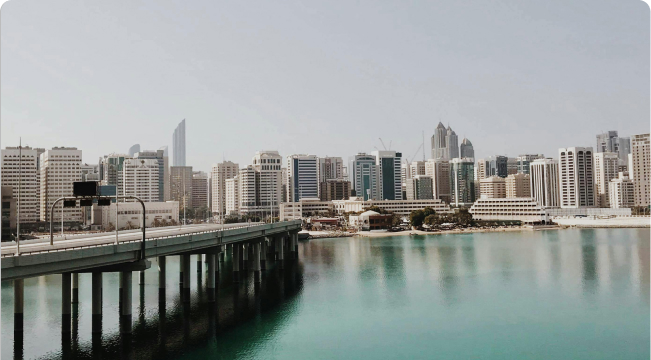Before 1958, the emirate’s main industry was the export of pearls. Since the discovery of oil, Abu Dhabi is one of the world’s leading producers of energy.
According to official data, Abu Dhabi has seen a 300 per cent increase in foreign investment since 2011. With a GDP of USD 310 billion achieved in 2023, Abu Dhabi's GDP represents 68% of the UAE's total GDP.
The emirate is also a pioneer in the global alternative and renewable energy industry. It is home to one of the world’s largest solar energy fields at Noor Abu Dhabi and the Arab world’s first nuclear energy plant, Barakah Nuclear Energy Plant. It is a major developer of clean energy technology and sustainable urban developments through Abu Dhabi Future Energy Company (Masdar). The emirate plans to rely on renewable energy to generate 50 per cent of its power needs by 2030.
Through its leading international financial centre, Abu Dhabi Global Market (ADGM), the emirate is advancing its position on the global financial map. ADGM is home to ADX, the largest stock exchange in the UAE by market capitalisation, as well as a dedicated crude oil commodity derivatives exchange at ICE Futures Abu Dhabi, which trades ADNOC's flagship Murban Abu Dhabi crude oil futures contracts that help benchmark global crude oil prices, and a thriving ecosystem of fintech startups and SMEs.
In May 2024, S&P Global Ratings affirmed its AA/A-1+ sovereign credit ratings on Abu Dhabi, which reflects the expectation that the emirate’s economy will remain strong over the next period. The latest Moody’s and Fitch ratings have also affirmed a stable outlook for Abu Dhabi.
Source:
Government of Abu Dhabi
Census 2023 results confirm Abu Dhabi's position as a preferred destination for living, working and doing business – Abu Dhabi Media Office
Read about Abu Dhabi Economic Vision 2030 (PDF 273 KB).





